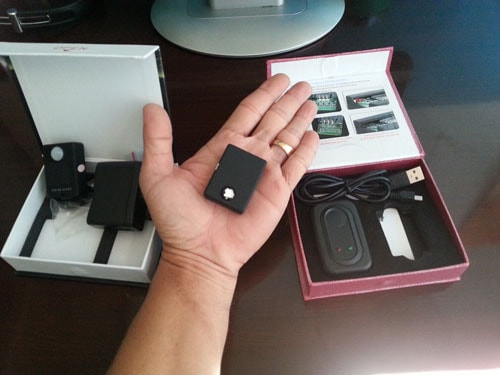Crisis of confidence
(Baonghean) -The discovery by the High-Tech Crime Prevention Police Department - under the Hanoi City Police Department - of a company specializing in software that helps users view messages, contacts, record calls, locate phones, record videos, take photos, turn on and off 3G/GPRS of monitored phones has unintentionally revealed a dark side of modern life. That is, people now live close to each other every day but have very little trust in each other.
 |
| A listening device sold on the market. Photo: TNO |
The reason for saying so is that, when checking the activities of the above company, the authorities discovered that more than 14 thousand phone subscribers had the above-mentioned eavesdropping software installed to closely monitor every "word" and relationship of the subscriber. Of course, the company did not do this proactively, voluntarily and for free, but was hired by others and paid to carry out this illegal monitoring. It is said that the cost of renting this service has reached billions of dong. The subjects who pay to rent this eavesdropping and eavesdropping service are extremely diverse. They can be anyone from any social class. Whenever there is a need to monitor or supervise someone, they immediately pay to hire them. But there is one extremely painful thing in common: the person monitoring and the person being monitored are both people who are familiar with each other. Even very familiar, living in the same house, sleeping in the same bed. These are couples who, although they still eat together every day, have lost or lack trust in each other. They hire to install "spyware" on their phones to monitor each other. Sometimes it is the husband who monitors his wife. Sometimes it is the wife who monitors her husband. So the happiness of the family no longer depends on the heartbeat but depends entirely on the parameters and data collected from each other's phones. These are parents who use this software to monitor, supervise and manage their children. They do so not only because they do not trust their children, the effectiveness of their education,their own education, but the main thing is that they no longer have absolute trust in schools, society and more broadly, people in general, so they have to keep an eye on them, have to be on guard so that they do not fall into the traps that people always set. Even though those traps are mostly in the imagination of parents. And the most targeted targets are partners who have business relationships with each other. Eavesdropping to know what people think, what they are doing and what they will do, whether it is good or bad for them, so that they can prepare and defend. And when necessary, they will "strike" back accurately and effectively. They even eavesdrop to get information, destroy each other, sabotage each other in business to gain benefits for themselves... And there are countless other reasons to install tracking software to collect each other's personal information... The number of more than 14 thousand mobile phone subscribers being eavesdropped on (this is only at one exposed company) shows that this need is very large. And it also shows that people are increasingly distrustful of each other. It is difficult to describe the feelings of those who suddenly discover that they are being secretly followed and monitored by relatives, friends, and partners. It is unclear what will happen then.
In short, no matter what, using high technology to monitor and eavesdrop on each other for any purpose is a manifestation of the degradation of behavioral culture, the degradation of life values. It is a proof that people increasingly lack trust in each other, lack respect for each other's privacy. Not to mention some bad elements use the collected information for other bad purposes. Perhaps after this incident, people will be more careful, more hesitant in communicating with each other and will be more vigilant with each other. But having to live with each other forever in suspicion will be extremely tiring. And gradually it will fall into crisis. That is the crisis of trust.
Duy Huong






